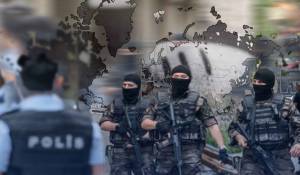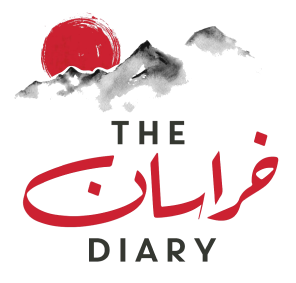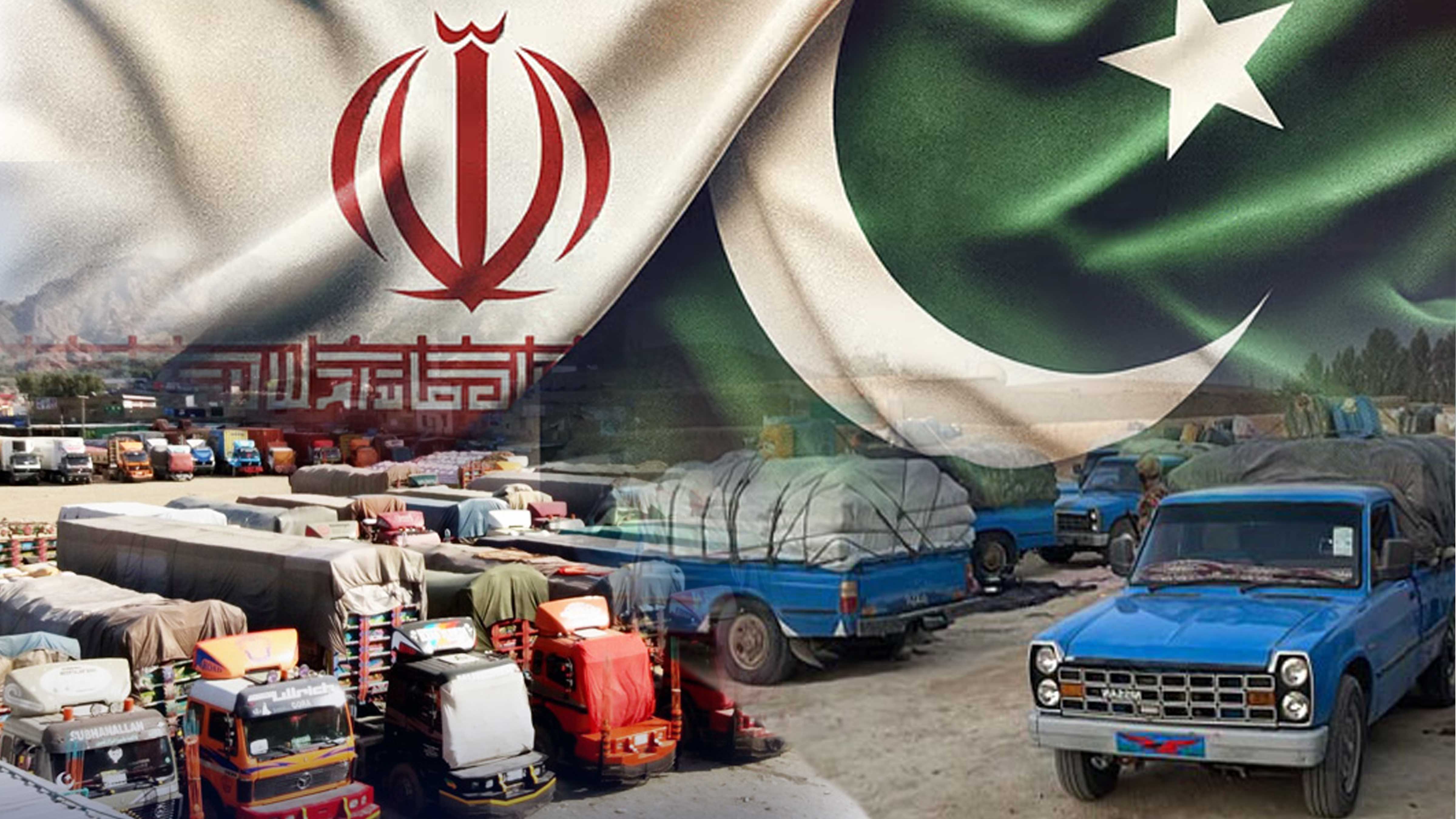
Imtiaz Baloch

February 22, 2026
By | Imtiaz Baloch

On July 8 and 9, 2024, a meeting of the 11th Joint Border Trade Committee (JBTC) – a body of officials and the business community from Pakistan and Iran – was held in Zahedan, the capital city of the Iranian Sistan and Baluchistan province.
The Iranian delegation, headed by Iraj Hassanpoor Director General / Provincial Industry, Mines & Trade Organization, and the Pakistani delegation, led by Irfan Javed Collector of Customs, Gwadar, agreed to enhance private sector involvement in joint ventures for infrastructural development.
During the meeting, both sides discussed multifactor dimensions to facilitate traders and encourage trade.
Following the meeting, Senior Vice President of Quetta Chamber of Commerce, Agha Gull Khalili, told The Khorasan Diary that discussions were held to facilitate truck movement without visas between Taftan and Mirjaveh, and up to Zahedan and Quetta. He added that consultations were also held related to visa fees and increasing railway wagon capacity.
Providing further details, Agha Gull said that both sides discussed keeping the Mirjaveh area adjacent to Pakistan’s Taftan border open throughout the day and all week long to facilitate traders. He disclosed that both delegations talked about establishing the Kohek-Chedgdi border as an official crossing point while also operationalizing a barter mechanism.
Over the years, Pakistan and Iran have formed different committees and commissions in addition to signing different memorandums of understanding (MOUs) to increase trade. However, officials claim that the trade between the two states could not increase despite the efforts due to a wide variety of factors. One of the main reasons, for example, was the international economic sanctions slapped on Iran by the West. Other reasons included a lack of interest on both sides, corrupt practices of officials, and the absence of commitment to formalizing trade activities.
Blessings in disguise for officials and the influential
Illicit trade with Iran costs millions of dollars to the Pakistani state while also posing hazards to small traders who are compelled to engage in the practice to make ends meet.
At the same time, however, officials and local politicians have been making the most out of illicit trade. Recently, an investigative document prepared by Pakistan’s civil intelligence agency – a copy of which is available with TKD – revealed that in 2023, the peak of Iranian oil smuggling reached approximately 10.1 million liters per day.
This was significantly reduced to 5 - 5.3 million liters per day owing to the crackdown launched on the practice by the caretaker government. However, after the General Elections of 2024, Iranian oil smuggling resurged to an estimated 8.9 million liters per day.
“Approximately 45% of the smuggled Iranian oil is transported to Sindh and 25% to both Punjab and Khyber Pakhtunkhwa, while the rest is consumed in Balochistan,” the report read.
It further revealed that law enforcement agencies (LEAs) were also involved in oil smuggling. Moreover, Baloch armed groups including the Baloch Liberation Army (BLA), Baloch Liberation Front (BLF), and the suicide bombing squad of BLA Majeed Brigade also had a stake in the practice as they received a share of the profit through indirect links in the bordering areas of the province.
The report also indicated that 15 officials from the Punjab province, seven from Sindh, five from Khyber Pakhtunkhwa's Dara Ismail Khan district, and 71 officials from Balochistan were found to be involved in oil smuggling.
Interestingly, the report highlighted that a total of 533 fuel stations across Pakistan had a stake in Iranian oil smuggling, of which 348 fuel stations were located in the Punjab province, 37 in Sindh, 31 in Khyber Pakhtunkhwa, and 114 in Balochistan.
Opportunities of trade with Iran
In April this year, Prime Minister Shehbaz Sharif and the late Iranian president H.E. Dr. Seyyed Ebrahim Raisi reaffirmed their commitment to enhancing broad bilateral cooperation between Islamabad and Tehran, especially in the realms of trade, energy, connectivity, culture, and people-to-people interactions.
Both sides agreed to work towards increasing the volume of bilateral trade to $10 billion over the next five years while also pledging to collaborate on developing joint strategies to address shared challenges such as the threat of terrorism.
Pakistan’s Ambassador to Iran, Mudassir Tipu, while talking to The Khorasan Dairy, said that Islamabad was optimistic about increasing trade between both countries.
After the 11th Joint Border Trade Committee (JBTC) held in the Zehedan, Tipu said that both countries were resolving issues related to border trade.
“We are resolving the issues of customs clearance, logistics, and infrastructure to facilitate the traders. In addition to that, both countries will establish a free zone at the border to boost growth and economic activity,” he said.
The ambassador added that the government would also talk about establishing a free trade area along with barter trade mechanisms that would see the involvement of the business sectors in both countries to horizontally and vertically improve trade opportunities.
"Our regional position is very favorable and more connectivity can yield enormous dividends by both historic neighbors", he said.
Scope and hurdles
According to prominent economist and pro-vice-chancellor of the University of Gwadar, Dr. Manzoor Baloch, the bilateral trade between Iran and Pakistan faces significant challenges due to Iran's isolation and international economic sanctions.
Dr. Baloch also emphasized that for a struggling economy like Pakistan, executing a free trade agreement with Iran poses a lot of difficulties.
He identified the lack of enthusiasm for increasing trade and the security situation along the border as major factors hindering the smooth flow of trading activities. Similarly, he said, that the absence of good governance and personal interests contributed to dysfunction in the trade relationship.
In terms of opportunities, he noted that Iran's capabilities in providing patrols, liquefied natural gas (LNG), and electricity align with Pakistan's needs.
"Iran can support Pakistan with its construction materials such as marble, cement, and everyday products, thereby creating potential areas for fruitful collaboration between the two countries", he said.
Plea of Locals
The Iran border serves as the primary source of income for nearly 3 million people in the region as people depend on border trade from Taftan to Gwadar. Therefore, closing the border without a clear path forward should be viewed as an arbitrary decision by the authorities concerned.
“Any upheaval in the border will affect the daily life of the masses”, said 26-year-old Sohail Sanjarani, a resident of Panjgur who runs his family business that heavily relies on the border trade.
According to Sanjarani, many people in the province rely solely on border trade, which officials term as smuggling.
"For the residents of border areas, however, smuggling is the only means of bread-earning," he said.
The main reasons for people to engage in these risky oil smuggling activities include a lack of job opportunities, poor governance, inadequate access to water for agricultural purposes, and the absence of industries in bordering areas.
The bordering areas of Balochistan have relied on informal trade with Iran for centuries without any formal regulation. While this practice has had negative effects on the national economy, it has also served as a lifeline for millions living along the border, he said.
Ashraf Baloch, a resident of Kech district in Balochistan and importer of Iranian products, highlights the need for alternative livelihoods for locals, as poverty and financial struggles may drive them to seek potentially harmful alternatives.
“Government needs to develop a comprehensive plan to provide alternative livelihoods for residents, should cross-border smuggling including the oil- considered a normal business in the district - be halted,” Baloch said.